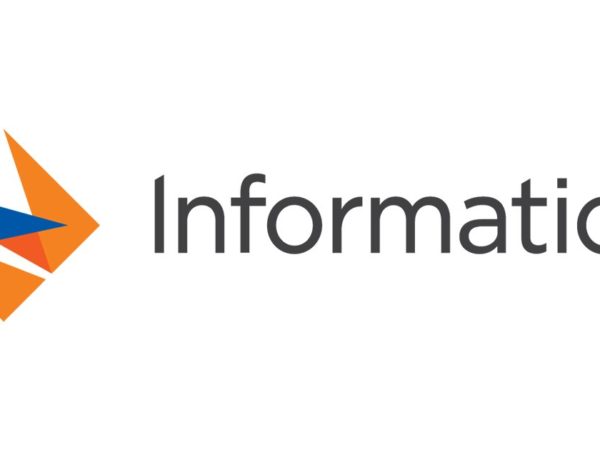<img data-ezsrc="https://computingforgeeks.com/ezoimgfmt/lh3.googleusercontent.com/wUgQxJFevnCRx7fHfZPEogpHvtSvawqm4JGa55rExxOUwKPMq02GatBLSYYyQrjPGZUkPr8No17RyQSTeu0WS2YyY2Km2pUScQpe8ckbbX_9hlDCwuaEFE0SAb9GojJzKnmrf1pvHJjjEQ8tEQ" ezimgfmt="rs rscb8 src ng ngcb8" height="416" src="data:image/svg xml,” width=”623″>
Proxies are ideally used to achieve digital privacy and anonymity. The reasons behind the need for privacy, however, differ from one person to another. While one person uses the anonymity to buy art from Japan, another one uses it to mine market data to boost his business. Yet another one may use it to access Netflix shows not available in their region.
Different types of proxies have been developed to cater to this wide array of users’ needs. Among these types of proxies, residential, and data center proxies are the most popular among users.
They have some similarities in design and function that allow users to use them interchangeably in some tasks. But each of them also has some distinct features that make them more ideal for some features compared to other types of proxies.
An intro to proxies and their importance
Proxies have become common technological tools for internet users looking for anonymity and privacy. They protect your device and browser by concealing your IP address. When your IP address is not visible, websites and other online systems can’t trace your web traffic to your device. This has made the use of proxies popular among individual users and businesses alike
But why do you need proxies?
People primarily use proxies for privacy. There are many tracking and surveillance bots online that can use your traffic and access your browser for malicious reasons. More people are, therefore, more committed to making themselves invisible to these and other digital systems.
The anonymity also allows you to access sites that you may not normally access. For instance, some websites restrict users from specific regions from accessing their sites. You can use a proxy to change your location to an acceptable region and access such websites.
Once you access the sites, you can then conduct market research in the region, procure services limited for the region or even purchase items for resale.
What is a residential proxy?
Every device that is connected to the internet has an IP address assigned by the internet service provider. The IP address is as unique as a human fingerprint and thus can be used to identify the device and location from which you are browsing.
Some internet users lease their IP address to companies that provide proxy services. The company then uses the IP addresses as a proxy for its customers. This type of proxy is known as a residential proxy and its IP address can be traced to a real physical location.
Since they have IPs with real addresses, websites rarely flag identify them as proxies. They are, therefore, more secure and reliable since they are less likely to be blocked by websites. Because of these features, residential proxies are particularly suited for data mining for business research.
You can find more information about residential proxies online.
Data center proxies
Unlike residential proxies, data center proxies get their IP addresses from data centers. The data centers are servers that have a broad bandwidth that necessary to manage several proxy IPs at the same time.
Since the IP addresses are not assigned to a specific physical location, it is easier for websites to identify and block data center proxies compared to residential proxies. They are, therefore, less reliable, especially when mining data on secured websites.
Data center proxies, however, are among the fastest types of proxies. A sneaker bot using data center proxy, for instance, can make multiple purchases in a second.
Data center vs residential proxies
Based on their individual features, data center and residential proxies differ in the following ways:
Price
Data center proxies are cheaper than residential proxies.
Speed
Generally speaking, data center proxies are much faster than residential proxies. However, static residential proxies have also been designed to offer high speeds without compromising on the qualities of residential proxies.
Security
Residential proxies are more secure than data center proxies.
Reliability
Residential proxies are rarely detected and blocked by websites and thus are more reliable.
Most ideal applications
You can comfortably use data center proxies for web crawling and mining data on smaller websites. Their speed makes them ideal for such situations. But if you want to mine data from bigger sights with robust security systems, residential proxies are more appropriate.
Static residential proxies and data center proxies can both be when you need to change your location to a different region.
Conclusion
As with any other product, you need to know how a certain type of proxy functions before purchasing it. Its features will help you evaluate whether it will serve the purpose you need it for. In the case of residential and data center proxies, there are many instances where either will serve you well.
There are other times, however, when you need either the security and reliability of residential proxies or the speed of data center proxies. To avoid confusion at such moments, choose a proxy service provider that is reliable and can guide you to make the right choice.



